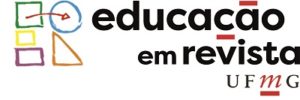Suzana dos Santos Gomes, Editor-in-chief of the journal Educação em Revista, Professor and researcher in the Graduate Program in Education – FaE/UFMG, Director of Distance Education at the Coordination for the Improvement of Higher Education Personnel (CAPES).
Here is an interview with the editor-in-chief of Educação em Revista (EDUR): Eucidio Pimenta Arruda, a professor at the Universidade Federal de Minas Gerais (UFMG), in the Postgraduate Program in Education. The professor presents his trajectory at EDUR, as well as the current and future challenges for maintaining quality and gratuity.
[SUZANA DOS SANTOS GOMES – SSG] We would like you to start by talking about the history of the journal. When was Educação em Revista actually conceived and how has the journal’s work evolved over the last few years?
[EUCIDIO PIMENTA ARRUDA – EPA] Educação em Revista is a publication of the Postgraduate Program in Education: Knowledge and Social Inclusion of the Faculty of Education of the Universidade Federal de Minas Gerais (FaE/UFMG). It was created in 1985, initially with a biannual edition, later with quarterly, and four-monthly editions. In 2016, the journal opted for an exclusively electronic format and, as of 2017, for continuous publication, which allows for greater efficiency and transparency in processing of manuscripts.
In 2021, Educação em Revista, in a vanguard move in the field of Brazilian scientific publications in Education, adopted in its editorial policy the acceptance of preprints, the availability of supplementary research materials and the opening of the peer review process, in line with Open Science. The journal is currently undergoing an intense internationalization process, with the publication of all articles translated into English.
[SSG] And who are the people responsible for all this work? How is the editorial team of Educação em Revista organized?
[EPA] Educação em Revista has a technical team with ongoing training in scientific publishing. It has a permanent employee who carries out the journal’s administrative management activities. There are three editors-in-chief who oversee the entire academic publishing process of the journal. There are at least 11 deputy editors who act as interlocutors between authors and reviewers. There are ongoing team training initiatives, aimed at continuous improvement of editorial workflows and processes.
[SSG] What has been the journal’s mission since its conception?
[EPA] Our mission is to contribute to the dissemination of scientific knowledge in the field of education, produced by researchers from universities and research institutions in Brazil and abroad.
The journal publishes original manuscripts in Portuguese, English, and/or Spanish, from different theoretical and methodological perspectives, which effectively contribute to the academic debate on the various dimensions of education.
[SSG] Considering the aspects you have highlighted, what are the main factors that contribute to the excellence of Educação em Revista at both national and international level?
[EPA] Our technical and academic team is highly qualified and professional, with working hours dedicated exclusively to the journal, in addition to the fact that the academic management of the journal is highly qualified, with a view to guaranteeing excellence in the evaluation and publication of articles with a high impact on the scientific community. Currently, our financial sustainability is guaranteed by the management of the editorial team and by funding from the Postgraduate Program in Education, through the assignment of staff to work on Educação em Revista. All this adds up to 39 years’ experience in editing and publishing scientific articles of high national and international relevance.
[SSG] Regarding the financial sustainability mentioned, could you provide more details about the specific strategies that Educação em Revista has implemented to ensure its continuity as a free and open access publication?
[EPA] Since 2019, Educação em Revista has been in the process of restructuring its entire management process, with the aim of reducing costs and ensuring better financial sustainability.
We have adopted the use of templates for the layout of articles, reorganized editorial workflows and are in the process of implementing a new organization of the work of editors and technical staff with a view to reducing costs. This move was necessary due to the national and international context of intense reduction in investment in scientific output.
The aim of these actions is to ensure that Educação em Revista remains a free and open publication for authors and readers. Participation in funding calls from agencies such as CNPq and FAPEMIG is important but does not guarantee regular funding.
[SSG] When it comes to the publication process for Educação em Revista, how long does it take, on average, from the time a manuscript is sent to the time it is published?
[EPA] The average time taken to receive, assess and publish manuscripts in the journal is approximately seven months.
[SSG] How has Educação em Revista dealt with new national and international editorial trends, such as Open Science and multilingualism?
Educação em Revista positions itself as a journal open to editorial innovations, seeking to incorporate national and international trends, such as Open Science, the translation of 100% of its manuscripts into English and the incorporation of professional practices in the editorial management process.
[SSG] What plans are underway to expand the journal’s international presence and increase its visibility?
[EPA] Educação em Revista is undergoing intensive internationalization. Since 2021, all articles published in Portuguese or Spanish have been translated into English, allowing the expansion of its readership, as well as allowing greater dialogue between authors from South America and authors and readers who speak English.
We are in the evaluation phase of the Scopus and Web of Science indexers, with a view to expanding the journal’s dissemination bases. It is expected that, with these activities, the journal will have a global impact in terms of quality and scientific dissemination.
About the interviewed
Eucidio Pimenta Arruda has experience in public educational policies in Digital Technologies and Distance Education. He has served as editor-in-chief of EDUR since 2019 and has done research in the areas of Artificial Intelligence, Education, and Teacher Training.
Educação em Revista Special Week
- Contributions of Educação em Revista for the advance of Open Science in Brazil
- Educação em Revista celebrates 39 years of publishing academic research: interview with the Editor
- Collective constructions: open peer review of an article on indigenous literature
- Pedagogical practices for student retention
- How do young people experience the democratization of access to higher education?
- Web platform can revolutionize the essay correction process
- The Open University of Brazil in the management of student permanence in Pedagogy courses
- Educação em Revista: editorial challenges and scientific possibilities
External Links
Educação em Revista – EDUR: www.scielo.br/edur/
Educação em Revista – Site | Instagram | Twitter | LinkedIn
Translated from the original in Portuguese by Lilian Nassi-Calò.
Como citar este post [ISO 690/2010]:




















Recent Comments